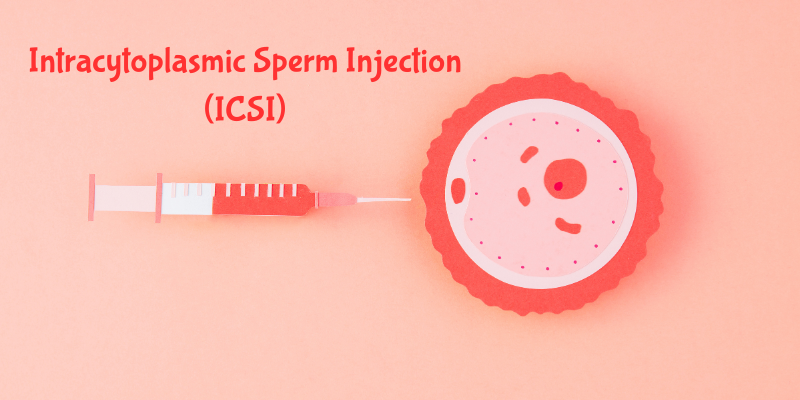



For successful fertilization of a woman’s egg by a man’s sperm, the head of the sperm must first attach to the outer layer of the egg, followed by its penetration through the outer layer into the inner cytoplasm where fertilization occurs. However, certain factors may impede this process, such as a thick or impenetrable outer layer of the egg or the inability of the sperm to swim effectively. When traditional methods of fertilization are not successful, a specialized procedure called Intracytoplasmic Sperm Injection (ICSI) can be used in combination with in vitro fertilization (IVF) to increase the chances of fertilizing the egg. In ICSI, a single sperm is directly injected into the cytoplasm of the egg to assist in the fertilization process. Ready to take the next step towards parenthood? Look no further than KD Blossom, the premier IVF center in Gujarat. Our state-of-the-art facilities, experienced medical professionals, and personalized care ensure the highest chance of success in your journey to conceive. Don’t wait any longer. Schedule your consultation today and let us help make your dreams of parenthood a reality.
Intracytoplasmic Sperm Injection (ICSI) is a specialized technique used in assisted reproductive technology (ART) to aid in the fertilization of an egg by a sperm. ICSI is typically used in conjunction with In Vitro Fertilization (IVF) when there are issues with the ability of the sperm to penetrate the outer layer of the egg, such as low sperm count, poor sperm motility, or abnormal sperm shape. During ICSI, a single sperm is selected and directly injected into the cytoplasm of the egg using a fine needle. This process bypasses the natural process of the sperm penetrating the outer layer of the egg and allows for direct fertilization to occur. Once fertilization occurs, the resulting embryo is transferred to the uterus for implantation and further development. ICSI is a highly effective method of achieving fertilization and is often used when other forms of ART have failed. However, as with all medical procedures, ICSI carries some risks and potential complications, which should be discussed thoroughly with a medical professional prior to undergoing the procedure. Experience the best chance of success in IVF - Contact KD Blossom today for top-notch ICSI services!
The term, Intracytoplasmic (pronounced IN-truh-sahy-tuh-PLAZ-mik) refers to the location where the sperm is injected during the ICSI procedure - inside the cytoplasm of the egg. The cytoplasm is a gel-like substance located in the centre of the egg that contains various molecules, water, and salts. Choose KD Blossom for successful IVF treatment in Ahmedabad and start your journey to parenthood today!
In Vitro Fertilization (IVF) is a method of assisted reproductive technology (ART) where an egg is fertilized by sperm outside of the body in a laboratory setting. With traditional IVF, a large number of sperm are placed near an egg in a laboratory dish, and the fertilization process occurs through the natural penetration of the sperm into the egg. However, the chance of successful fertilization is left up to chance. In contrast, Intracytoplasmic Sperm Injection (ICSI) is a specialized form of IVF that involves the direct injection of a single sperm into an egg, promoting the fertilization process. Although ICSI provides a more controlled method of fertilization, it is still not a guarantee that fertilization will occur. After fertilization, the resulting embryo is then transferred to the uterus, where pregnancy can occur if the embryo successfully implants in the uterine lining. Both traditional IVF and ICSI can be used in this process.
Assisted reproductive technology (ART) refers to medical procedures or techniques used to help people achieve pregnancy when they have difficulty conceiving on their own. ART involves the manipulation of eggs, sperm, or embryos outside of the body in a laboratory setting to facilitate fertilization, implantation, and ultimately, pregnancy. Some common ART procedures refer to In Vitro Fertilization (IVF), Intracytoplasmic Sperm Injection (ICSI), Gamete Intrafallopian Transfer (GIFT), and Zygote Intrafallopian Transfer (ZIFT). These procedures can be helpful for individuals or couples struggling with infertility, same-sex couples, and individuals who wish to preserve their fertility for future use.
Studies have shown that babies born as a result of Intracytoplasmic Sperm Injection (ICSI) do not have a significantly higher risk of birth defects or developmental delays compared to babies born through traditional IVF or natural conception. However, it is important to note that certain factors can increase the risk of developmental issues in any pregnancy, including prematurity, low birth weight, and genetic disorders. It is also important for parents to discuss any potential risks and concerns with their healthcare provider and seek regular prenatal care to ensure the health of both the mother and baby throughout the pregnancy.
If you or your partner are experiencing difficulty in conceiving, your healthcare provider may suggest the use of Intracytoplasmic Sperm Injection (ICSI), which is a type of In Vitro Fertilization (IVF) commonly used in cases of male infertility. ICSI involves several stages, including egg stimulation and retrieval, sperm collection, embryo creation in a laboratory, and embryo transfer. It is important to have a conversation with your healthcare provider to determine whether ICSI is the appropriate fertility treatment for your specific situation. If you also are experiencing infertility and looking for IVF or ICSI Treatment, then must get in touch with KD Blossom as we are known as one of the best IVF centers in Ahmedabad. Do get in touch with us today.